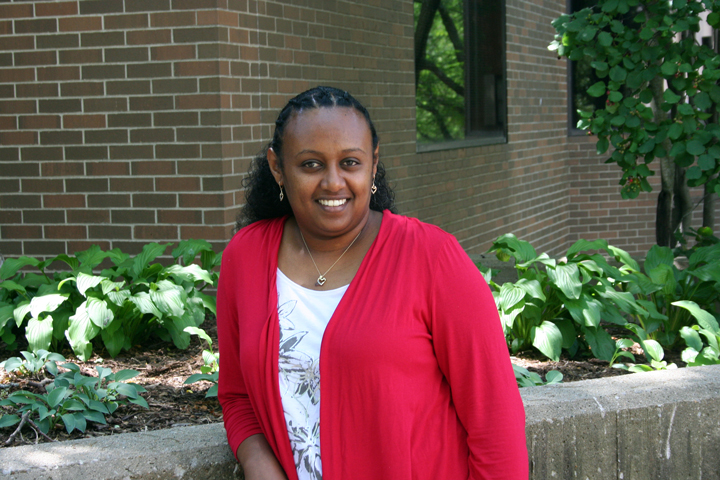
Berhan Gelan’s family prioritized education throughout her upbringing. She recalls how her parents continually monitored her academic efforts to make sure she attended college.
“My mother regularly talked about how a woman should be independent and should earn her own income,” Berhan says.
For many women in Berhan’s native Ethiopia, college isn’t a realistic option. Even with efforts in place to minimize barriers to education, women still face numerous challenges that limit access to college.
Berhan is one of the fortunate few because she grew up in an urban area with a supportive family. With her family's help, she was able to attend nearby Addis Ababa University (AAU) in Addis Ababa, Ethiopia. Thanks to a strong support system and her own desire to succeed, Berhan excelled at AAU, achieving both a bachelor’s degree in educational psychology and a master’s degree in counseling psychology.
After graduation, Berhan remained at AAU as a faculty member until coming to the University of Iowa’s College of Education to pursue a Ph.D. in counselor education and supervision under Dennis Maki, professor of rehabilitation and counselor education.
AAUW Fellowship
A mother of two children (ages 6 and 9), Berhan received an international fellowship from the American Association of University Women (AAUW) for the 2013-14 academic year. The AAUW International Fellowship is awarded to women who are not U.S. citizens or permanent residents for full-time study or research in the United States. The fellowship is valued at $20,000.
“I really needed this support to keep on being successful in my academic commitments,” Berhan says. “I wanted support to do my research. This means more time devoted for research and less financial worries. I want to thank the AAUW for its commitment to eliminate barriers to girls’ and women’s education.”
AAUW selects fellows based on academic achievement and commitment to women and girls. After their studies, fellows return to their home countries to become leaders in business, government, academia, community activism, the arts, and sciences.
Researching Ethiopian families—parental role in academic success
Berhan's research dives deeply into the values and experiences of parents in Ethiopia. She is developing a qualitative research method to study the cultural meanings, ideals, challenges, and support networks for parenting in urban Ethiopia.
“I believe family well-being is a foundation for society,” Berhan says. “When a family is doing well, the society can achieve desired development.”
Berhan believes parental involvement is a crucial part of academic achievement in children. Through her research and continued efforts, Berhan hopes to uncover information that can bolster efforts of Ethiopian parents eager to help their children succeed.
According to the website Index Mundi, children (ages 0-14) make up 44.6 percent of Ethiopia’s population. In comparison, children in the same age range make up 20 percent of the U.S. population. With so many children in Ethiopia, Berhan believes more efforts should be made to help her home country's children become successful citizens.
“(Those statistics) drove my interest in understanding family experiences and generating knowledge that can be used to engage different communities in Ethiopia,” Berhan says. “The available information on parenting does not give professionals a complete picture of parenting experiences in Ethiopia.”
Berhan looks forward to returning to Ethiopia next spring or summer to begin data collection for her dissertation.
“Most women grow up in rural areas, meaning a lot of hard work and possibly an early marriage,” says Berhan. “For me, there were no barriers. But my story is not the typical woman’s story in Ethiopia.”